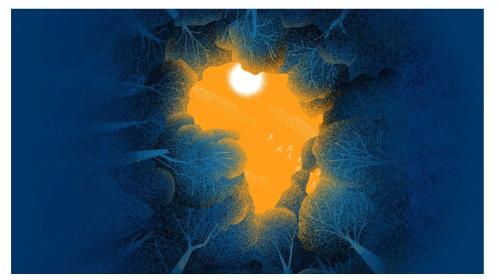What a persistently low oil price does to oil-rich countries is like what a long, cold winter does to people. It makes many of them sick. This is especially true if countries don’t have a “good immune system.” For example, oil exporters that suffer from an appreciated exchange rate, a narrow industrial base, and a skewed distribution of productive capacity in favor of non-tradable sectors are particularly vulnerable to a long “winter” of low oil prices. Without a diversified export base, these countries’ macroeconomic performance quickly worsens and their residents experience income losses.
Economists have long known that large resource discoveries could be harmful to economies in the long-term, a phenomenon that was named Dutch disease following the effects of the Netherlands’ gas discovery in the North Sea. What they have not known until recently is how easy it is to catch it. The disease was thought to be transmitted primarily via exchange rate movements, following a large inflow of foreign currency, for example, due to a natural resource discovery, a surge in commodity prices, remittances, foreign aid, or investment. New research has revealed that catching this disease is much easier than previously thought. It can even happen without real appreciation of the currency.
A paper published earlier this year shows that the disease can simply arise from the inequality in the distribution of natural resource rents. A resource boom increases spending on non-tradable luxury goods and services disproportionately. With increased demand and opportunities in these sectors, workers leave other sectors like manufacturing. Thus, production in these sectors decline not necessarily because they are costly but because they are not a priority in the short-run.
Domestic political instability can also give rise to Dutch disease. Researchers investigating the foreign greenfield investment flows to the countries of the Middle East and North Africa from 2003 and 2012 have found that political instability is associated with significantly reduced investment inflows only in the tradable manufacturing and services sectors. Foreign greenfield investments (operations built from the ground up) in the natural resources and non-tradable services sectors are insensitive to political instability. In fact, as shown in another paper published this year, investors often do not care about governance if they have privileged access to resources, and they continue to invest in resource-related projects in politically unstable and even war-torn economies. Thus, political instability can drive a shift from tradable sectors to resource-based sectors without an exchange rate appreciation.
These new findings show that not just an overvalued exchange rate, but high inequality and political instability also weaken the immune system of resource-rich economies and give rise to Dutch disease. This means that there is more to treating Dutch disease than meets the eye. Devaluing a currency may not suffice to rekindle exporting sectors if income inequality and political instability are the true underlying problems. In many cases, unequal distribution of resource rents also lie at the center of the political instability, creating additional complications.
Other research suggests that distributing the resource revenues directly to people can help these countries get out of such a low-level political-economy condition and address a host of problems, including inefficiencies in labor markets and the public sector. The same political economy factors, however, also make the application of this idea difficult. The elites in these countries often cling to their monopoly power over the control of natural resources. Public service jobs, subsidies, and other forms of transfers are typically geared to ensure political clout and survival. Therefore, in most cases, not only a sound macroeconomic framework, but also a deep transformation of the state-society relationship is paramount to curing the disease. How can such a fundamental transformation be achieved? That is the billion-dollar question. Transferring at least a share of the revenues directly to people would be a good start.





Commentary
Dutch disease: An economic illness easy to catch, difficult to cure
October 31, 2017